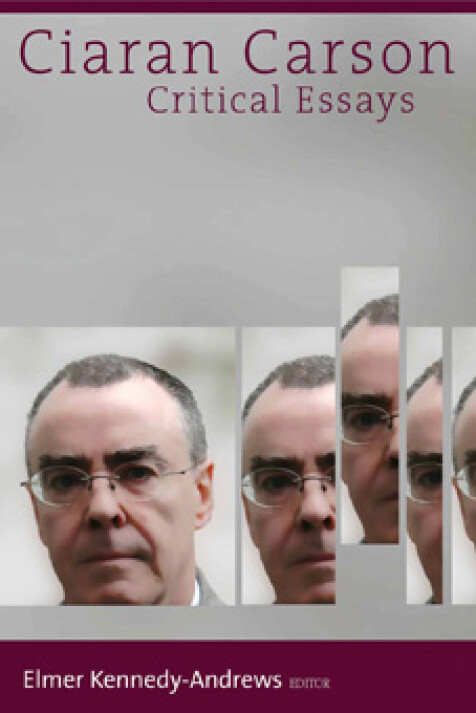Ciaran Carson
Critical Essays
Elmer Kennedy-Andrews, editor
'One the ‘Seven Deadly Things … To do this week’ – ‘Read the first full-length critical study of Belfast poet and prose writer’, Sunday Tribune (March 2009).
'This, the first full-length book devoted to criticism of Carson's work, appears as he reaches his sixtieth birthday [and] it looks quite enticing', Books Ireland (April 2009).
‘Ciaran Carson is one of the most interesting and challenging writers at work in Ireland today and is Belfast’s unofficial poet laureate, ever since the publication of three extraordinary collections of verse: The Irish for No in 1987, Belfast Confetti in 1989, and First Language in 1993 … This volume opens with a fifteen-page interview conducted by the editor through emails in which the subject discussed such issues as his literary influences, his Catholicism, his attraction towards a kind of agnostic mysticism, his search for ‘a language beyond language’, and his abiding interest in music, particularly Irish traditional music', Hugh McFadden, Books Ireland (May 2009).
‘The watchful, stirring work of the beloved Irish poet, musician and prose writer, Ciaran Carson, is inspected in this collection of essays … the volume opens with a masterful interview with its subject – an entertaining dialogue that proves to be as intriguing as the critics’ reports', Mary McWay Seaman, The Celtic Connection (September 2009)
‘This examination of Carson’s poetry is long overdue. Although one finds multiple journal articles on Carson (b. 1948), this is the first book on him, which is surprising, given his long, fruitful career as a poet from Northern Ireland … The essays are accessible and engaging … Highly recommended', C.S. Kalish, Choice (November 2009).
‘The 13 contributors [to this volume] give engrossing insights into Carson’s work; particularly a writer whose output in poetry and prose has enjoyed “quite a remarkable resurgence of energy and productivity” in this last decade. Ciaran Carson: critical essays will more than satisfy both the student researching Carson’s work, and the writer interested in pursuing the techniques behind his lyrical pyrotechnics', B.S., Verbal Arts (Winter 2009).
‘Kennedy-Andrews’ interview, conducted via email over a number of months, yields intriguing gems about Carson, including his religious background … the thirteen critics who contribute to this collection perceive Carson’s work through a variety of theoretical lenses. Kennedy-Andrews accurately generalizes that Carson “represents a challenged to the conventional discourses that govern our understanding and representation of history and identity” (247). The critics in this volume rise to the challenge and substantially expand the discussion about not only Carson’s work but contemporary Irish literature', Brian Dillon, Irish Literary Supplement (Autumn 2010).

